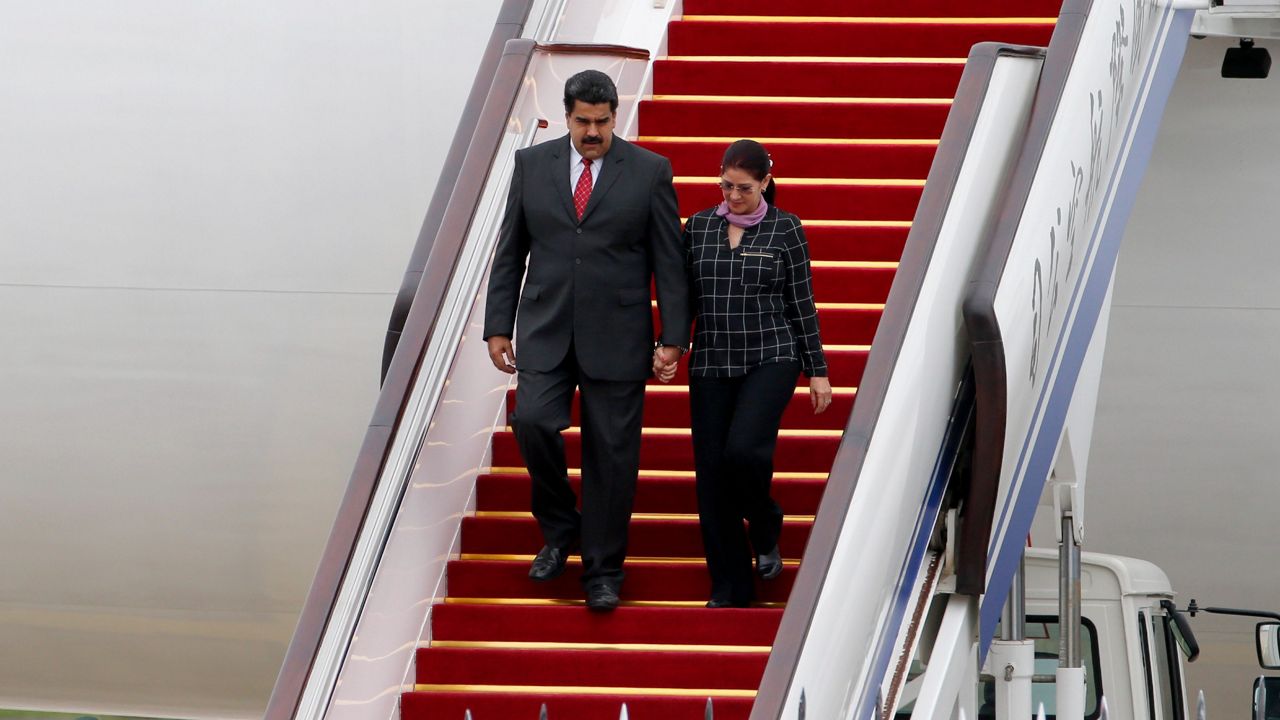The U.S. government has seized a plane used by Venezuelan President Nicolas Maduro that officials say was illegally purchased through a shell company and smuggled out of the United States in violation of sanctions and export control laws.
The Dassault Falcon 900EX was seized in the Dominican Republic and transferred to the custody of federal officials in Florida, the Justice Department said Monday. The plane landed at Ft. Lauderdale Executive Airport shortly before noon Monday, according to flight tracking websites.
U.S. officials say associates of the Venezuelan leader in late 2022 and early 2023 used a Caribbean-based shell company to hide their involvement in the purchase of the plane, valued at the time at $13 million, from a company in Florida. The plane was then exported from the U.S. to Venezuela, through the Caribbean, in April 2023 in a transaction meant to circumvent an executive order that bars U.S. persons from business transactions with representatives of the Maduro regime.
The plane, registered to San Marino, was widely used by Maduro for foreign travel, including in a trips earlier this year to Guyana and Cuba. Attorney General Merrick Garland said in a statement that it had been smuggled out of the U.S. for use by “Maduro and his cronies.”
State media footage from a December visit to Saint Vincent and the Grenadines shows Maduro, First Lady Cilia Flores, and senior officials getting off the airplane ahead of a day of discussions over a territory dispute between Venezuela and neighboring Guyana.
“Let this seizure send a clear message: aircraft illegally acquired from the United States for the benefit of sanctioned Venezuelan officials cannot just fly off into the sunset,” Matthew Axelrod, an assistant secretary for export enforcement in the Commerce Department, said in a statement.
CNN first reported the plane seizure.
The seizure announcement comes just over a month after Venezuelans headed to the polls for a highly anticipated presidential election in which ruling party-loyal electoral authorities declared Maduro the victor without showing any detailed results to back up their claim. The lack of transparency has drawn international condemnation against Maduro’s government.
Meanwhile, the opposition managed to obtain more than 80% of vote tally sheets – considered the ultimate proof of results – nationwide. The documents, the faction said, show Maduro losing by a wide margin against former diplomat Edmundo Gonzalez.
It was also the plane that carried several Americans jailed for years in Venezuela to the Caribbean Island of Canouan last December where they were swapped for a close Maduro ally, businessman Alex Saab, imprisoned in the U.S. on money laundering charges.
In March, it flew to the Dominican Republic, along with a Venezuelan-registered plane, for what was believed to be maintenance, never to leave again.
Monday’s action follows the U.S. government’s earlier seizure in Argentina of a Boeing 747-300 cargo plane transferred from Iran to a subsidiary of Venezuela’s state-owned airlines.
Federal prosecutors have also have seized several private jets belonging to top government officials and insiders who have been either sanctioned or indicted in the U.S.
The U.S. has sanctioned 55 Venezuelan-registered planes, mostly belonging to state owned oil giant PDVSA.
It’s also offered a $15 million bounty for the arrest of Maduro to face federal drug trafficking charges in New York.
The Venezuelan government’s centralized press office did not immediately return a message from The Associated Press seeking comment Monday.



